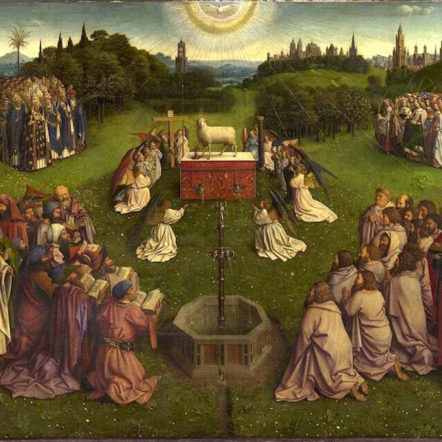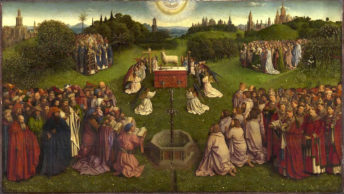Usually, we let Jesus get away with a lot of stuff just because he is the Son of God and can do no wrong. However, if we start from this standpoint, we will fail to appreciate the message Jesus wants to leave with us on this 22nd Sunday in Ordinary Time.
Jesus was invited to a formal dinner into a house of a prominent Pharisee so that he could see that he was considered on equal footing with the host and the other guests. Eventually, according to local etiquette, Jesus would have had to reciprocate. What ensues, instead, is something more than shocking. Jesus acts in an extremely rude and uncalled-for way.
How would we feel if our guest of honor were to continue to embarrass us, first by lecturing our other guests and exposing their hubris, and then, by telling us bluntly that we should stop inviting our friends and equals and instead to commit social suicide by inviting the scum at the bottom of the social ladder?
So, what is the message we should get from this outlandish incident? In a nutshell, Jesus wants to create in us the proper inner disposition for the formal dinner of the Eucharist as foretaste of the Wedding Feast of heaven. We cannot miss either. It is a question of spiritual life and spiritual death.
Let me try to make us appreciate this lesson by recalling one of the many cultural shocks I experienced as a missionary in Thailand. I noticed that the giving and receiving of presents followed a precise etiquette and protocol. Any kind of presents must not be opened in the presence of the giver! There were presents given out of love and those were the only presents that did not come with the price tag still on. However, “social presents” had their original price tag still glued on! The tag was necessary to let the recipient know the extent of the favor asked and/or the price of the gift that was expected in return. All this was necessary for social order and etiquette.
This might be similar to what was going on in the Gospel passage we are considering. The guests honored at the banquet were all basically in the same social bracket and were supposed to reciprocate by inviting their equals to a banquet in their homes. Instead, Jesus was saying: “This might work okay in societies, especially in the Orient, but it cannot be applied to our relationship with God whenever he invites us to his Eucharistic Celebrations in view of the Heavenly Banquet.
Even when God becomes man, one like us, our relationship with him is not among equals: we are always the poor, the crippled, the lame, the blind, those unable to repay even in a very modest fashion.
The proper protocol with our God calls for sincere, heartfelt humility and profound gratitude. And for this to really work, we must stop any form of self-affirmation and quest for recognition. For everyone who exalts himself will be humbled (BY GOD), but the one who humbles himself will be exalted (BY GOD) Luke 14:11
Now, if this is the case, and if Jesus, here present, rehashes this old incident, it simply means that he must be noticing in us something quite amiss.
There wasn’t much love for Jesus in the host or in the other guests at that formal dinner. They did not intend to honor him as much as they wanted, rather, to size him up, judge, and maybe even condemn him.
Aren’t there times when, inflated by self-importance, we “play God” by trying to control events and people? Far from surrendering control of our lives into God’s loving and powerful hands, we might do unusual things to control, modify, alter the lives of others, and feel disappointed if we fail.
The sum of our efforts to control events and people should be considered our “playing God.” Or we “play God” by doing things in such a way that others must be convinced that parts of the world cannot function without us. Or we “play God” by seeking recognition and accolades from the recipients of our favors.
Any way of playing God must be called self-affirmation; and it is the root of many things ugly and painful, the world over!
Basically, what Jesus desires so ardently of us, today, is twofold:
To let God be God for us and all around us. To embrace our status as “beggars,” as “crippled,” as “lame.” To come eagerly to this Banquet where our grim poverty is showered with all sorts of divine blessings in view of true repayment in the resurrection of the righteous. Luke 14:14
Secondly, to replace with sincere acceptance/affirmation of others our tendency to size up, criticize, judge, and condemn.
This requires the humility of seeing them all as our equals, and just as entitled to be showered by our common Father with all spiritual and material gifts. This requires also pure eyes to see and appreciate the bounty that God has given them for our sake too.
Such a pristine outlook would, indeed, be a reliable way we can be certain that God’s invitation to the Wedding Feast of the Lamb still stands.






